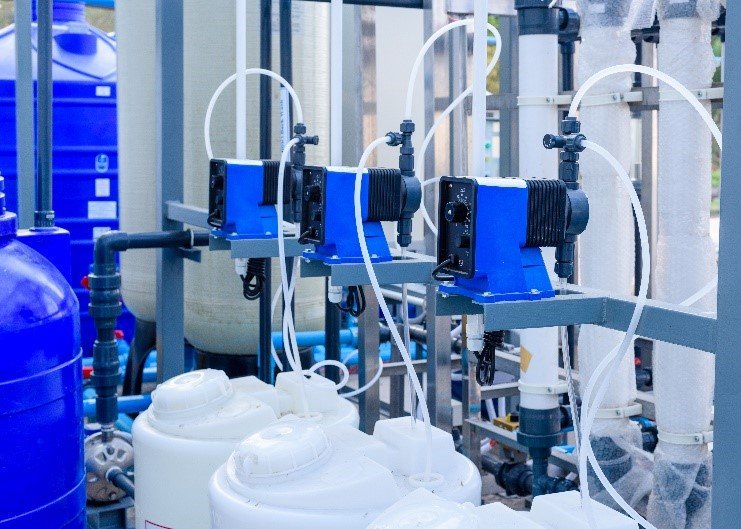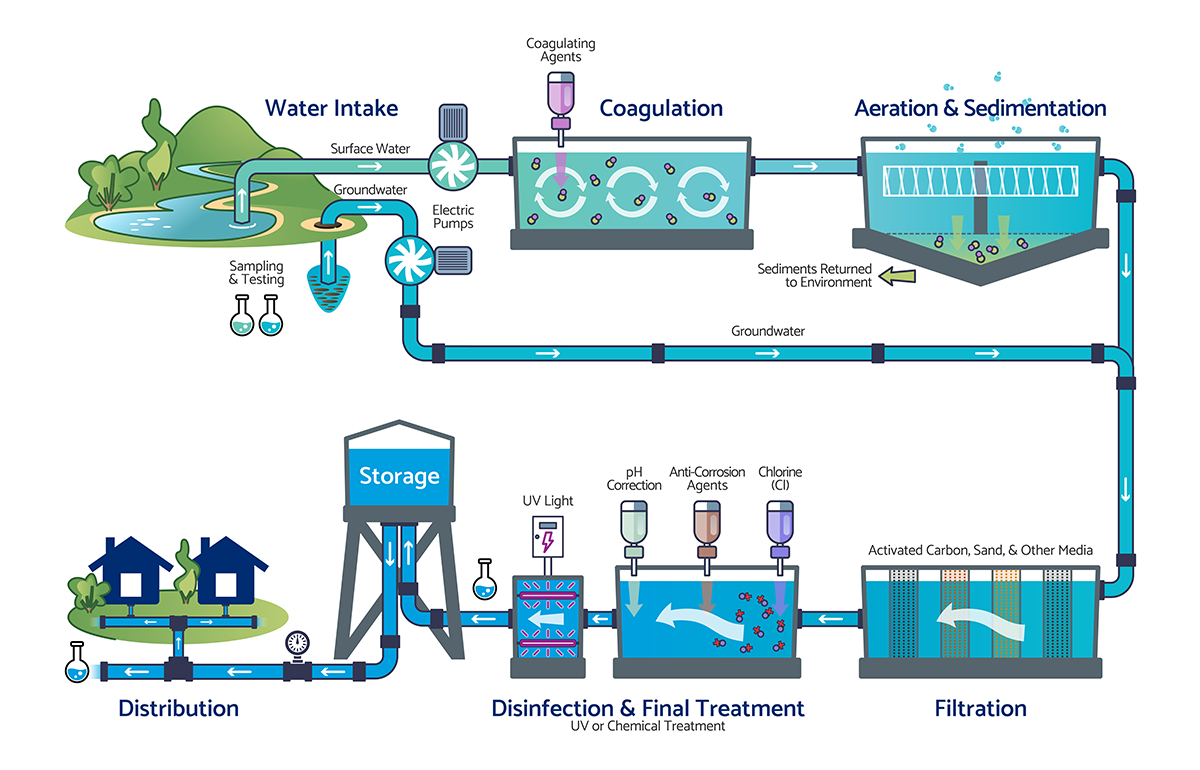Water Technology Startups FAQs: Everything Investors Want to Know
Wiki Article
Checking Out Water Technology Startups: How They Transform Lasting Solutions
Water Technology start-ups are arising as important gamers in the pursuit for sustainable options to global water problems. These firms utilize innovative innovations to improve water performance and monitoring. Their contributions address pressing difficulties such as deficiency and contamination. Despite their possibility, they deal with various obstacles that might affect their success. Recognizing these characteristics clarifies the future of water sustainability and the function these start-ups might play in forming it.The Value of Water Technology in Today's Globe
As worldwide water deficiency heightens, the significance of water Technology ends up being progressively obvious. Water Technology plays an important function in addressing the difficulties presented by lessening freshwater resources and raising demand. It incorporates a broad array of developments, including sophisticated purification systems, wastewater treatment modern technologies, and wise irrigation remedies. These innovations not just improve the efficiency of water usage however also promote lasting methods across numerous industries, including farming, industry, and urban growth.Additionally, the significance of water Technology expands beyond source administration. It promotes resilience versus environment modification effects, such as floodings and dry spells, by giving adaptive remedies for water conservation and administration. In addition, it sustains public health by ensuring access to risk-free and clean drinking water. As the globe faces expanding water-related challenges, the combination of sophisticated water innovations is important for fostering lasting advancement and protecting water accessibility for future generations.
Cutting-edge Solutions From Water Tech Startups
While typical approaches to water administration have actually served their function, a brand-new wave of water technology startups is transforming the market with innovative solutions (Water Technology Startups). These firms utilize innovative innovations to attend to pushing water issues, such as scarcity, contamination, and inefficient distribution. Numerous start-ups utilize expert system and maker understanding to maximize water use and anticipate need, causing even more lasting techniquesIn addition, several companies focus on establishing sophisticated filtration systems that eliminate toxins and make water safe for intake. Others discover decentralized water therapy technologies, enabling neighborhoods to manage their water resources extra successfully. Additionally, some startups are pioneering smart watering services that lessen water waste in agriculture, promoting ecological preservation.
Instance Studies: Successful Water Technology Startups
Many water Technology start-ups have become leaders in dealing with global water obstacles via ingenious strategies. One noteworthy example is Xylem, which concentrates on water analytics and wise infrastructure to maximize water use and lower waste. Their options have been applied in numerous districts, demonstrating considerable enhancements in water management performance.Another successful start-up, Zero Mass Water, has established solar-powered hydropanels that extract water vapor from the air, supplying lasting drinking water in deserts. Water Technology Startups. This Technology has been released in numerous countries, making sure communities have access to clean water
Lastly, AquaVenture Holdings operates a varied portfolio of water-as-a-service services, resolving water shortage with desalination and wastewater treatment. Their jobs have actually proven crucial in areas facing severe water lacks, showcasing the capacity of cutting-edge water modern technologies to develop long-term, positive impacts. These study highlight the transformative possibility of start-ups in the water Technology field.
The Role of Smart Technology in Water Management
Smart Technology plays a vital duty in modern water monitoring by leveraging IoT applications to maximize source use. Information analytics improves performance by providing workable understandings, while remote monitoring remedies make it possible for real-time oversight of water supply. With each other, these advancements change just how water is handled, promoting sustainability and operational effectiveness.IoT Applications in Water
As water deficiency and administration obstacles heighten around the world, the assimilation of Net of Points (IoT) applications has become a pivotal service in optimizing water sources. IoT Technology assists in real-time tracking and analysis of water supply, allowing a lot more effective usage and administration. Sensing units released in numerous water facilities can track top quality, flow prices, and leakage, giving useful information to stakeholders. This information equips utilities and customers to make informed choices, lowering waste and improving preservation efforts. Furthermore, wise watering systems use IoT to optimize water distribution for agriculture, making certain that plants obtain the correct amount of water at the correct time. In general, IoT applications are changing typical water management methods, cultivating sustainability and durability in water source systems.Data Analytics for Effectiveness
Harnessing data analytics is necessary for improving performance in water administration. Water Technology start-ups are increasingly using innovative analytics to optimize resource allowance and lower waste. By analyzing data from various sources, these startups can recognize patterns and fads that inform better decision-making. Predictive analytics can anticipate water need, allowing energies to readjust supply accordingly, consequently minimizing excess and shortages. Furthermore, real-time information handling makes it possible for the prompt discovery of leaks and inadequacies within circulation systems, significantly decreasing operational expenses. Data-driven insights equip stakeholders to carry out targeted preservation techniques, fostering lasting methods. Essentially, integrating data analytics into water administration not just simplifies procedures however additionally advertises long-term sustainability in water source usage.Remote Monitoring Solutions
While traditional water monitoring systems frequently have a hard time with ineffectiveness, remote monitoring solutions are changing exactly how water resources are taken care of. These ingenious modern technologies allow real-time data collection and evaluation, enabling stakeholders to monitor water high quality, flow prices, and usage patterns from afar. Making use of sensing units and IoT devices, remote tracking gives immediate understandings that assist in positive decision-making. This change not only boosts functional efficiency yet likewise advertises sustainability by reducing water waste and enhancing resource appropriation. Furthermore, remote surveillance systems can recognize potential problems prior to they intensify, therefore reducing the threat of contamination or infrastructure failing. As water Technology startups proceed to develop these remedies, the industry is poised for substantial advancements in navigate to this website lasting water administration techniques.Obstacles Facing Water Technology Startups
Water Technology startups come across considerable obstacles that can impede their development and success. Key concerns consist of securing appropriate financing, navigating with complicated governing settings, and competing in a congested market. These barriers need calculated preparation and development to conquer.Funding and Investment Obstacles
Although innovation in water Technology holds tremendous capacity for dealing with worldwide obstacles, start-ups in this field commonly deal with substantial financing and financial investment hurdles. Numerous investors remain mindful, regarding the water market as risky because of its complex governing landscape and lengthy growth timelines. Furthermore, startups usually battle to show instant success, which can discourage potential backers. Traditional venture capital might neglect water innovation, preferring fields with quicker returns, such as technology or durable goods. Furthermore, protecting grants and government funding can be competitive and lengthy, additional complicating economic stability. Water Technology Startups. Because of this, several ingenious water Technology start-ups find themselves in a perilous position, needing imaginative financing methods to navigate these financial obstacles and attain their goalsGoverning Conformity Issues
Steering regulative conformity is a considerable challenge for start-ups in the water Technology sector, as they have to come to grips with a myriad of regional, nationwide, and worldwide regulations. These regulations frequently incorporate water quality criteria, environmental management regulations, and safety procedures, which can vary commonly throughout jurisdictions. Start-ups might locate it tough to browse this complicated landscape, especially when scaling procedures or getting in new markets. The prices connected with compliance can be significant, diverting sources away from development and product growth. Furthermore, delays in acquiring required licenses or qualifications can prevent growth and market entrance. Subsequently, a robust understanding of regulative frameworks is necessary for these start-ups to ensure sustainable procedures and stay clear of potential legal repercussions.Market Competition Dynamics
As water Technology startups emerge in an affordable landscape, they deal with countless challenges that can restrain their growth and development. Developed firms commonly dominate the market, leveraging sources and experience to preserve their positions. Startups fight with limited funding, which limits study and advancement abilities, making it tough to contend on Technology and prices. In addition, the quickly advancing nature of water modern technologies demands constant adaptation, more stressing startup sources. Regulatory obstacles can complicate market entrance, as compliance with ecological standards is vital yet expensive. Finally, bring in knowledgeable ability in a specific niche area provides another barrier, as larger companies may offer more enticing work bundles. Subsequently, these factors produce a complex atmosphere for water Technology startups aiming to succeed.The Future of Water Technology and Sustainability

The future of water Technology will likely concentrate on integrating expert system and data analytics to optimize water circulation and usage patterns. By using real-time information, companies can forecast lacks and handle sources a lot more efficiently. Moreover, lasting methods will certainly become a foundation of the industry, urging circular economic climates where water is recycled and treated. Ultimately, the ongoing evolution of water Technology will certainly be important in creating resistant facilities with the ability of meeting the obstacles positioned by environment modification and populace growth while advertising ecological stewardship.
Often Asked Inquiries
What Are the Key Metrics for Reviewing Water Technology Startups?
Key metrics for reviewing water Technology start-ups include market capacity, scalability, consumer acquisition expenses, revenue growth, modern technology innovation, regulative conformity, environmental effect, affordable advantage, and team competence, all crucial for establishing long-term feasibility and success.Exactly How Can People Support Water Technology Innovations?
Individuals can support water Technology advancements by purchasing startups, supporting for policy modifications, joining community initiatives, sharing understanding regarding lasting techniques, and advertising awareness of water issues with neighborhood occasions and social media.What Prevail Funding Sources for Water Technology Startups?
Common financing resources for water technology start-ups consist of equity capital, federal government gives, crowdfunding platforms, angel visit this website investors, and corporate partnerships. These financial avenues help facilitate innovation and development in lasting water management technologies.
Which Industries Advantage The Majority Of From Water Technology Advancements?
Industries such as farming, power, manufacturing, and municipal solutions profit significantly from water Technology advancements. These innovations boost water effectiveness, decrease prices, and promote sustainable techniques, eventually adding to ecological conservation and source administration.Are There Any Type Of Regulatory Challenges Details to Water Innovation?
Yes, water Technology faces regulative challenges, consisting of compliance with ecological standards, allowing processes, and differing regional laws. These intricacies can impede development and slow down the implementation of new technologies in the water management market.Water Technology startups are arising as important players in the mission for sustainable solutions to global water problems. As international water shortage heightens, the significance of water Technology ends up being increasingly noticeable. Others explore decentralized water therapy technologies, enabling areas to handle their water resources much more properly. An additional successful startup, Absolutely no Mass Water, has actually developed solar-powered hydropanels that draw out water vapor from the air, supplying lasting alcohol consumption water in arid regions. Their jobs have actually confirmed important in regions facing extreme water shortages, showcasing the potential of ingenious water innovations to produce enduring, positive effects.
Report this wiki page